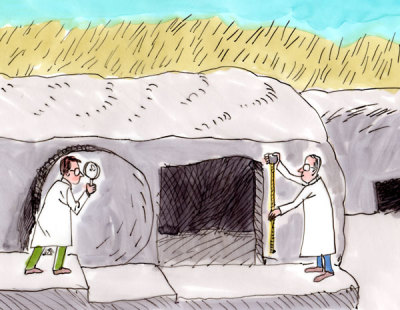The resurrection — true or false?

How can we know that something is actually true? What methods can we use to prove it? Suppose someone tells you that they have just returned from climbing Mount Everest. You can take their word for it, of course, but you can also apply three simple tests to assess the validity of the claim.
First, determine whether the claim is distinguishable by eliminating credible contradictions. Are there any known facts that contradict their claim? For example, has anyone seen this person in another location at the time?
Once you eliminate all credible contradictions, next evaluate the measurable evidence that supports their claim. Is there a record of the climber's name at base camp? Are there witnesses? The more measurable evidence, the more likely the story is true.
Lastly, use reason to determine if it is logical that it is true. How likely is it that the climber's story is supported by ample evidence while having no credible contradictions? If this is the case, it’s probable that the climber did, in fact, climb Mount Everest.
The validity of Christianity rests on one simple claim: that Jesus rose from the dead over 2,000 years ago. 1 Corinthians 1:16 says, “For if the dead do not rise, then Christ is not risen. And if Christ is not risen, your faith is futile; you are still in your sins.” But how do we know if it's actually true?
As with the Everest example, start by eliminating contradictions. Some claim the disciples stole the body, but could fishermen overpower Roman soldiers who guarded the tomb? Additionally, no one has produced a body for over 2,000 years.
Others claim that Jesus was in a coma and walked out on His own. Basically, they claim He never actually died. Others claim that the disciples fabricated the resurrection, while others claim that Jesus had a twin.
Next, we examine the measurable evidence in favor of the resurrection. The most powerful piece of evidence is an empty tomb. If someone could produce a dead body, Christianity would fall apart. Jesus was referenced by countless Jewish and Roman historians who would have no reason to make him up.
There are also eyewitness accounts of people seeing Jesus after His resurrection. Think of the disciples who, immediately after Jesus's death, hid away in fear for their own lives. All of a sudden, they became bold proclaimers of the Gospel based solely on their claims of a resurrected Jesus. They even suffered brutal deaths because of their claims. Who would give up their lives based on a lie? The Church grew based solely on the fact of the resurrection, and it grew in the very place the resurrection could have been disproved.
Ultimately, we're faced with the question: Was Jesus' resurrection the greatest hoax of all time? And if it wasn't — if logic dictates that Jesus actually did live, die, and rise from the dead — what choice will you make?
Think about it. We all know that none of us is perfect. That is called sin. We all know that sin brings consequences, and the main consequence is called death. Jesus paid the penalty of sin by dying on the cross but conquered death by rising from the dead. Does the evidence bear witness to that?
Romans 10:9 says, “If you confess with your mouth the Lord Jesus and believe in your heart that God has raised Him from the dead, you will be saved.” You can deny Him or accept Him. What will you choose to believe?
After being addicted to cocaine during my time in the NFL, I called out to Jesus and quit my cocaine habit in one day. I was forever changed, and I have dedicated my life to sharing the Gospel with the world! I’ve seen countless miracles since, and I’ve witnessed millions of peoples' lives change for the better because of Jesus.
Please don't accept Jesus on blind faith. Look at the evidence. I urge you to consider the evidence, make a decision for yourself, and get serious about sharing the truth with others! This isn’t just the job of a pastor on Easter Sunday. We are all responsible for making sure the good news of the Gospel spreads throughout the world.
To help you get started, here is a simple definition of the gospel that you can share with others:
The Gospel is the good news that God became man in Jesus Christ. He lived the life we should have lived and died the death we should’ve died in our place. Three days later, He rose from the dead, proving that He is the Son of God and offering the gift of salvation and forgiveness of sins to anyone who repents and believes in Him.
Miles McPherson is the Senior Pastor of the Rock Church in San Diego. He is also a motivational speaker and author. McPherson's latest book “The Third Option” speaks out about the pervasive racial divisions in today’s culture and argues that we must learn to see people not by the color of their skin, but as God sees them—humans created in the image of God.
Links: https://www.sdrock.com/
https://www.sdrock.com/pastormiles/
https://milesmcpherson.com/
Instagram: https://www.instagram.com/milesmcpherson/
FB: https://www.facebook.com/pastor.miles.mcpherson/
Twitter: https://twitter.com/milesmcpherson



























